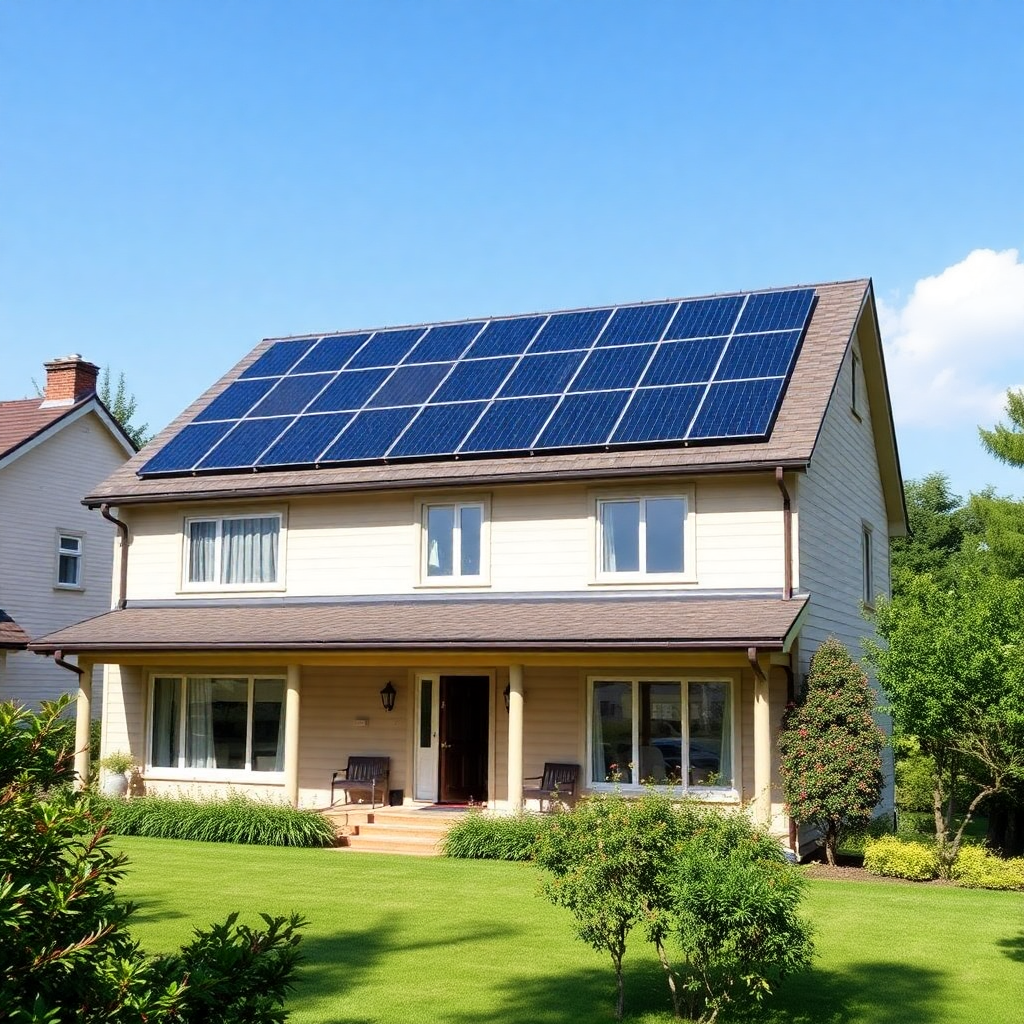The integration of solar panels in the energy Internet is an important part of promoting the optimization of the energy structure and the improvement of energy utilization efficiency. The following are the key points to note when integrating solar panels in the energy Internet:
First, technological integration and innovation
Upgrade of inverter technology
The inverter, as a key device for converting direct current output by solar panels into alternating current, plays a crucial role in the energy Internet. Attention should be paid to the upgrading of inverter technology to enhance conversion efficiency, reduce losses, and at the same time ensure that inverters are equipped with intelligent control, remote monitoring and other functions to meet the demands of the energy Internet.
Intelligent control and monitoring
In the process of integrating solar panels with the energy Internet, it is necessary to introduce intelligent control technologies and monitoring systems to achieve real-time monitoring and data analysis of the operating status of solar panels. This is helpful for timely detection of faults, optimization of operation strategies, and improvement of the stability and reliability of the system.
Integration of energy storage technologies
Energy storage technology is the key to solving the intermittency and volatility of solar power generation. In the integration of solar panels and the energy Internet, the integration of energy storage technology needs to be considered. Through reasonable energy storage configuration, the stable output of solar power generation can be achieved and the energy utilization efficiency can be improved.
Second, system design and optimization
The integration of microgrids and smart grids
Solar panels, as an important component of distributed energy, can be connected to the energy Internet through microgrids or smart grids. When designing the system, it is necessary to consider the compatibility of solar panels with microgrids and smart grids to ensure the stable operation of the system.
System Optimization and Scheduling
The energy Internet is a complex system involving multiple forms of energy and various devices. In the integration of solar panels and the energy Internet, it is necessary to pay attention to the overall optimization and scheduling of the system. Through reasonable energy allocation and scheduling strategies, efficient utilization of energy and balance between supply and demand can be achieved.
Third, market and business model innovation
Marketing promotion of distributed energy
Solar panels, as a type of distributed energy, have the advantages of flexible installation and convenient maintenance. In the development process of the energy Internet, it is necessary to pay attention to the market promotion of distributed energy. Through reasonable business models and policy support, the market demand for distributed energy should be stimulated.
Innovation in Energy Trading and Services
With the development of the energy Internet, energy trading and service models are also constantly innovating. The integration of solar panels in the energy Internet requires consideration of how to participate in energy transactions and service innovation, and maximize commercial value by providing diversified energy services.
Fourth, safety and reliability guarantee
Equipment safety and reliability:
As a key device in the energy Internet, the safety and reliability of solar panels are of vital importance. During the integration process, it is necessary to pay attention to the quality, performance and maintenance of the equipment to ensure its stable operation and reduce the occurrence of faults and accidents.
Network Security and Data Protection
The energy Internet is a complex system based on information technology, and the issues of cyber security and data protection cannot be ignored. In the integration of solar panels and the energy Internet, issues of network security and data protection need to be considered. By strengthening network security protection and data encryption technology, the security and integrity of system information can be ensured.
Fifth, policy and regulatory support
Policy guidance and support
The integration of solar panels in the energy Internet requires the guidance and support of government policies. The government can stimulate the market demand for distributed energy and promote the application of solar panels in the energy Internet by formulating relevant policies, providing financial subsidies and tax incentives and other measures.
Regulations, Standards and Supervision
With the development of the energy Internet, relevant laws, regulations, standards and regulatory systems are also constantly improving. The integration of solar panels in the energy Internet requires compliance with relevant regulations, standards and regulatory requirements to ensure the compliance and security of the system.
In conclusion, the integration of solar panels in the energy Internet requires attention to multiple aspects, including technological integration and innovation, system design and optimization, market and business model innovation, safety and reliability guarantee, as well as policy and regulatory support. By comprehensively considering these factors, the efficient integration of solar panels in the energy Internet can be achieved, promoting the optimization of the energy structure and the improvement of energy utilization efficiency.


